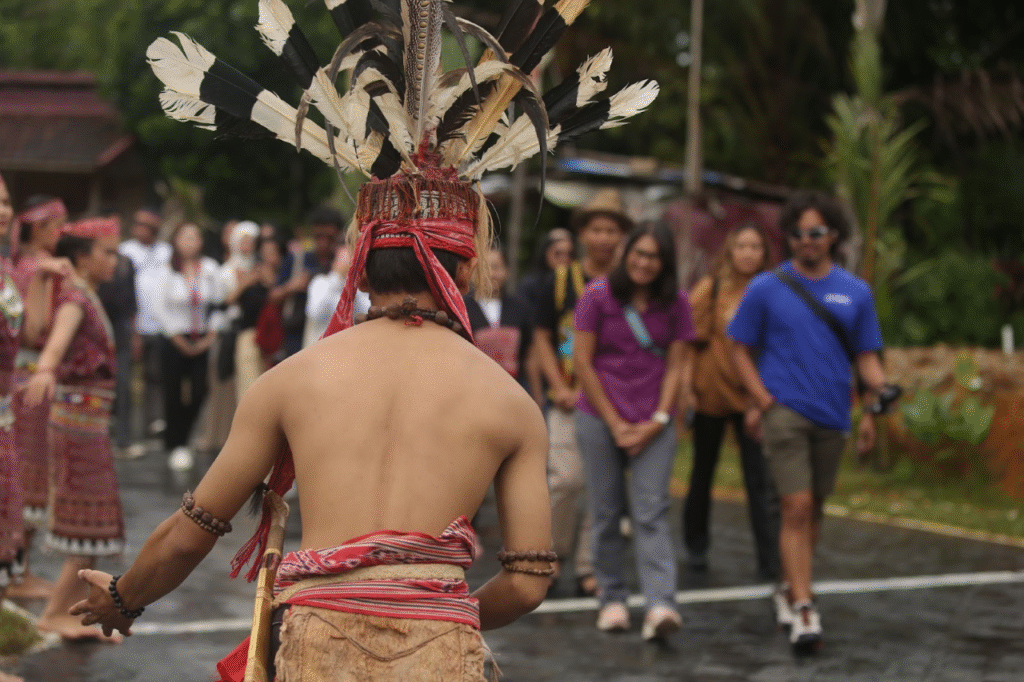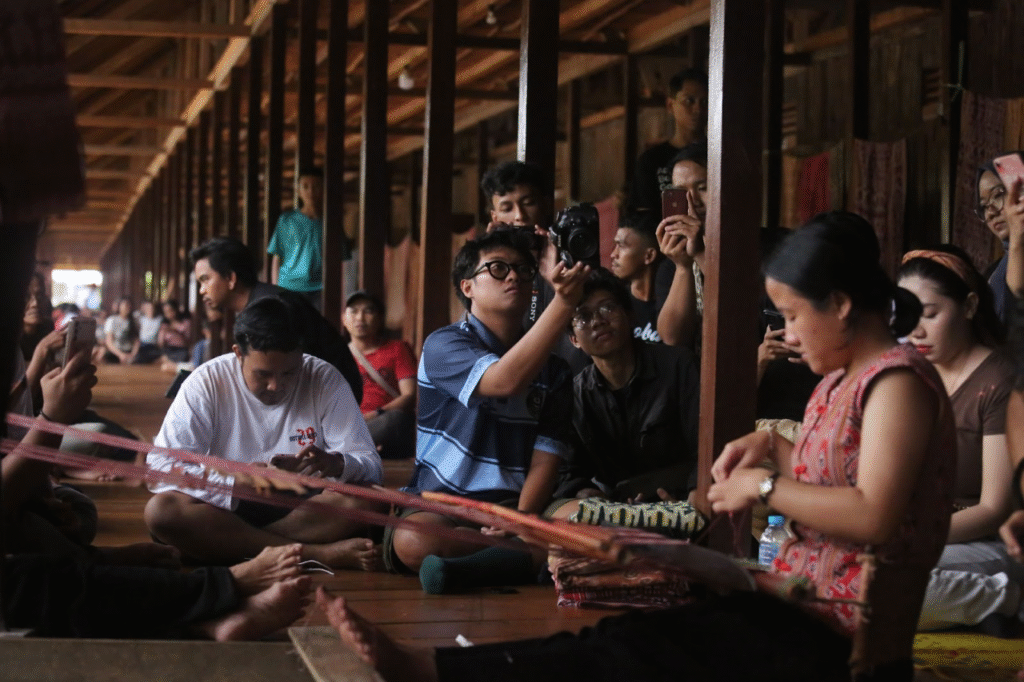
A 2025 study by Booking.com shows travelers are becoming more aware of tourism’s impact on communities and are increasingly interested in authentic, off-the-beaten-path experiences. Tourism plays a major role in the Philippine economy, with the WTTC’s 2025 Economic Impact Research projecting a record PHP 5.9 trillion contribution this year, cementing travel and tourism as key economic pillars.
However, nature-based tourism faces threats from climate change and land conversion. In Southeast Asia, 30% of land has been converted to agriculture, putting 5,678 species at risk—including 25 already extinct and over 1,100 critically endangered. This loss also harms indigenous communities who rely on forests for food, medicine, crafts, and rituals, as many plants and natural resources become scarce.
Delving into the Meaning of Dayak Village Traditions Through Nature and Cultural Tourism

Lingkar Temu Kabupaten Lestari (LTKL), an organization that supports regencies across Indonesia, together with youth communities in West Borneo, recently launched the ‘ExploNation’ initiative. Partnering with travel blogger Febrian and storyteller Abex, LTKL empowered 14 local youth to explore and share the cultural heritage and environmental wisdom of Sintang Regency. The campaign aimed to showcase how ecotourism, when combined with the right support from the regional government, can protect the region’s nature and culture, thereby making a positive impact on environmental conservation efforts.
During their visit to Ensaid Panjang Village, the group stayed in traditional longhouses known as “Rumah Betang” and immersed themselves in local practices such as “Rimba Gupung,” a community-managed forest that provides food, medicinal plants, and natural dye materials. This forest is legally protected under the Sintang Regent Regulation, with sustainability ensured by communal rules passed down through generations.
The youth also experienced “Tutur Bedudu,” the Dayak Desa’s oral storytelling tradition, which shares tales of origins, values, and reverence for nature as the “mother” of life. Storytelling here is a vital tool for passing environmental knowledge and cultural identity to future generations.
Women weavers at the “Rumah Belajar Kain Pantang” (House of Pantang Weaving Learning) demonstrated tenun ikat, a traditional knot weaving technique using natural dyes derived from forest plants. This craft not only preserves ancestral knowledge but also supports sustainable livelihoods for local women.
Travel blogger Febrian reflected on the urgent need for environmental restoration in Indonesia: “Given the current situation, environmental restoration is an urgent step. Preserving culture and enhancing community welfare are crucial components of a restorative economy built on Indonesia’s natural and cultural wealth. The various regions of Indonesia I have visited and documented so far have all made me realize the importance of preserving and protecting nature to foster a sustainable economy, for example, through the development of ecotourism.”
The potential for growth
What has been done in Sintang could further expand the tourism sector in West Kalimantan. In 2024, there were 8.1 million domestic tourists and 73,000 international tourists who visited West Kalimantan, a significant increase of 73.33% compared to the previous year. This, of course, can be accelerated further with the growth of foreign tourists who want to come to the region.
The Head of the Youth Division of the Sintang Regency Youth and Sports Office, H. Sumardi, stated, “We fully support initiatives like ExploNation as a collaborative platform between young people and content creators to highlight positive stories in Sintang, particularly about how the community protects its environment through ecotourism. This presents an opportunity to develop culture and nature-based tourism, in keeping with the local wisdom of the community, which has been preserved for generations.”
In line with the local government’s commitment to preserving nature and culture, Abex also felt a sense of urgency after participating in ExploNation, sharing a strong perspective on the importance of communities returning to protecting and nurturing the earth.
“This trip has raised the awareness that ‘There’s No Planet B.’ If our natural environment is destroyed, there will be no place left to stand, as humans absolutely need nature to survive. We can return to nature, utilize its gifts without greed, and begin recovery by teaching the younger generation that nature is both a home and a source of life that must not be lost,” said Abex
ExploNation is not just about tourism promotion but also about building awareness that cultural and environmental preservation is a shared responsibility across Southeast Asia. Lessons from Indonesia, where forests and traditions anchor culture-based ecotourism, offer valuable insights for neighboring countries, such as the Philippines. The hope is that stories from creators and youth will reach broader audiences, encouraging appreciation for local wisdom as a key to resilience in the face of global crises.
